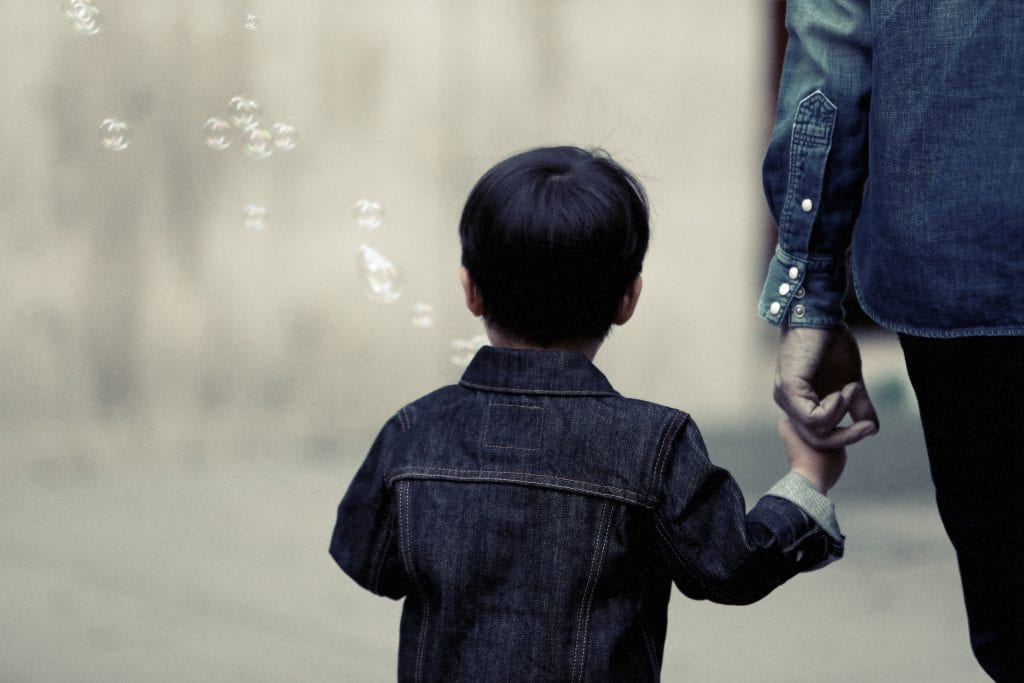Is Your Asian Parent a Narcissist? Here Are 6 Classic Signs to Watch Out For
It’s safe to say many Asian children don’t have very close relationships with their tiger parents.
The nature of stereotypical Asian parenting methods doesn’t leave a whole lot of room for the child to be able to express their creativity or talk about their emotions. As this continues into adulthood, they become less willing to confide in their parents or go to them for emotional support.
As Asians, we’re more inclined to see this as a cultural difference — of course our parents care about us, they just show it in different ways compared to white parents. However, certain psychologists don’t seem to completely agree.
There are plenty of jokes about these stereotypes on social media but obviously not all Asian parents are the same. Maybe your parents never sent you to Kumon, maybe they didn’t care if you became a doctor or got straight A’s. But if you grew up with the classic Amy Chua tiger parent, it appears the parenting methods line up almost identically to symptoms of narcissistic personality disorder.
So, are Asian parents narcissists? Should we re-think certain parenting tactics and admit to ourselves that they’re borderline abusive? Or is it a cultural difference that westerners just can’t relate to or possibly understand? To understand, let’s examine some basic symptoms and qualities of narcissistic parents:
1. They’re always shaming & guilting you

“The narcissist manipulates, projects, attacks, and then makes nice to their child – to keep the focus on the narcissist.” – Meredith Resnick, When Your Parent Is a Narcissist
Narcissistic parents project guilt and shame onto their children in various ways to remain dominant. They may call their children ungrateful, compare them to other people, nit-pick, invalidate their emotions or reject accomplishments. The child is often made to feel like an embarrassment to the family and blamed for upsetting the parents.
2. They exercise control over major life decisions

“Control must be maintained at all times, and the only way to do that is to assert one’s power. Mother must always know best. She is not to be contradicted.” – Alexander Lowen, Narcissism: Denial of the True Self
Whether it’s the way that their children dress, where they go to college or what their profession will be, the parents always take control and the child accepts it as the norm. A parent should help their child discover their interests and teach them the independence they’ll need to succeed. Instead, the narcissistic parent does not consider the happiness of their child and only thinks of what they would like from their child.
3. They care more about your image than they care about you

“The only time the narcissist parent does see the child’s value is when the child is working to ‘create’ the parent. In other words, to give the parent an identity that is pleasing to the parent.” – Meredith Resnick,When Your Parent Is a Narcissist
How others perceive the family is very important to a narcissistic parent, even at the expense of the well-being of the child. They manipulate the child’s behavior, hobbies and life decisions to achieve a certain image for themselves; the focus is on seeking ego-boosting attention and creating a trophy offspring.
4. Your self-worth comes solely from your achievements

“Daughters of narcissistic mothers absorb the message ‘I am valued for what I do, rather than for who I am.’” – Karyl McBride, Will I Ever be Good Enough?: Healing the Daughters of Narcissistic Mothers
Love and acceptance are always conditional when living with a narcissistic parent. Their children learn that the only way to get along with their parent and gain positive attention is to become over-achievers. Of course, it isn’t necessarily bad for parents to care about their children’s grades and achievements. However, while parents who truly care about their child would be willing to make certain sacrifices and spend time helping their child, the narcissistic parent only demands results. They believe the child should be thankful for the basic necessities provided to them and will use this as an excuse for the lack of effort and attention.
5. They’re always disappointed with you over something

“The narcissist parent does not see the child as special – or see the child at all” – Meredith Resnick, When Your Parent Is a Narcissist
Children of narcissistic parents often suffer from low self-esteem due to excessive criticism aimed at making them feel like constant disappointments. Narcissistic parents are unable to be mindful of their child’s feelings; they only care about their own emotions. Narcissistic parents constantly express disapproval of their children’s actions and often withhold love and approval as punishment. It’s impossible for the child to please such parents because what is deemed pleasing will constantly change.
6. They demand compliance from their children and they’re inflexible

“The child acts according to the family rules of not seeking attention directly but still craves attention and tries to find ways to get it, completely unaware of the grief they feel about not being seen simply for who they are.” – Meredith Resnick, When Your Parent Is a Narcissist
Narcissistic parents can become irritated at the slightest deviation. They have a rigid mindset of what they want from their children and are unwilling to compromise. Narcissists are also unwilling to admit that they may be wrong as they lack self-reflection; this results in demanding complete obedience from their children. No matter how many valid points are raised by the child, a narcissistic parent will not listen.

These characteristics are major barriers to intimacy and makes it difficult to maintain a healthy, lasting relationship between children and their parents.
So are all Asian parents narcissists? Absolutely not; that would be a gross over-exaggeration. Each Asian parent has their own ways of parenting; some are lenient and encourage self-expression while others may exhibit several of these harmful traits. As their children, the best we could do is to replicate the positive traits in the future and leave the toxic ones in the past.
The post Is Your Asian Parent a Narcissist? Here Are 6 Classic Signs to Watch Out For appeared first on NextShark.
Contributer : NextShark



 Reviewed by mimisabreena
on
Thursday, December 13, 2018
Rating:
Reviewed by mimisabreena
on
Thursday, December 13, 2018
Rating:














No comments:
Post a Comment